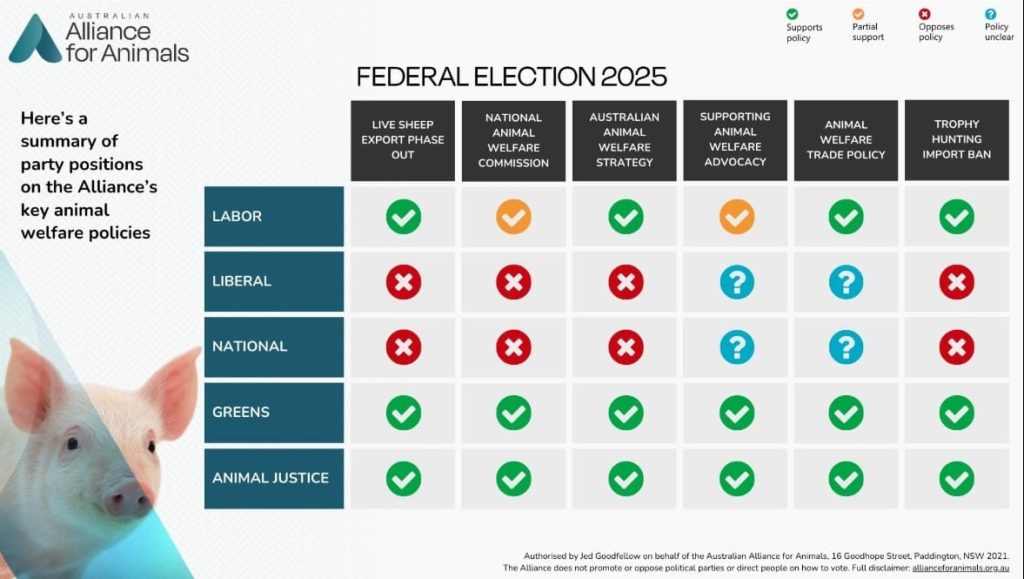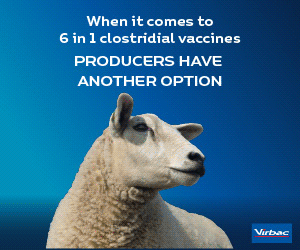
ANIMAL activism will play no part in the Coalition’s Agriculture Plan released this week in the lead-up to the federal election ballot on Saturday.
The Liberal-Nationals Coalition said its Agriculture Plan would back farmers and communities, putting an end to three years of Labor’s anti-farming agenda.
Nationals leader David Littleproud told Sheep Central: “animal activists have absolutely no influence on the Coalition’s Agriculture Plan.”
“The Coalition’s plan is about helping our farmers and industry, unlike Labor, who choose deals with activists to win some inner-city votes, and have no plan for agriculture.
The Coalition’s Agriculture Plan would focus on;
Developing a national food security plan – an end-to-end food security plan, with an interim report in the first six months of a Coalition Government.
Establishing a sustainable biosecurity funding model – by legislating a minimum level of biosecurity funding, and introducing an import container levy for sea and air, rather than taxing farmers to pay for the risks created by imports.
 Bringing back the workers needed for the agricultural industry – through an Agriculture Visa, reviewing the Pacific Australia Labour Mobility Scheme and the Pacific Engagement Visa to ensure they meet the needs of employers, workers and Pacific nations, and maintaining the 88-day rule for the Working Holiday Visa.
Bringing back the workers needed for the agricultural industry – through an Agriculture Visa, reviewing the Pacific Australia Labour Mobility Scheme and the Pacific Engagement Visa to ensure they meet the needs of employers, workers and Pacific nations, and maintaining the 88-day rule for the Working Holiday Visa.
Building agricultural productivity and resilience – by reversing Labor’s ban on live sheep exports, finalising the Brett Cattle live export class action case, and ensuring fairness at the farmgate for farmers and at the checkout for families through tougher action on supermarkets.
The Coalition’s plan followed the National Farmers Federation’s objections to the Australian Animal Alliance’s ranking of the major political parties on animal welfare grounds, and has received qualified support from the peak farmer body, believing it will improve conditions for the nation’s farmers.
National Farmers Federation president David Jochinke said the Coalition’s Plan for Agriculture, combined with the its policies on water, promised to deliver several of the NFF’s election priorities related to food security, reducing taxes and red tape, improving worker safety and availability, stopping water buybacks, reinstating live sheep exports and more.
“We welcome the focus on farming from the Coalition, and the understanding that a strong farm sector underpins the standard of living of every Australian.
“While this doesn’t deliver everything we asked for, it’s a plan that would meaningfully improve conditions for Australian farmers,” he said.
“We know that policies that hurt Aussie farmers, ultimately hurt every Australian trying to put food on their table.
“Whoever forms the next Government needs to appreciate that and pursue a positive plan to keep farmers farming,” Mr Jochinke said.
Animal welfare tactics an attack on agriculture
The NFF said election policies on animal welfare revealed in an “activist-led” Federal Election scorecard raised alarm bells.
The NFF said the Australian Alliance for Animals claims in a pre-election policy review that Labor and the Greens have made several major promises on animal welfare without informing the Australian public – or consulting the farm sector.
Mr Jochinke said farmers were deeply worried Labor and the Greens were yet again taking advice from an uninformed, city-based minority whose only on-farm experience has been illegally sneaking into properties.
“Farmers’ livelihoods depend on positive animal welfare outcomes – our animals are our number one priority.
“Decisions and regulations around animal welfare must be informed by science and evidence and done in consultation with industry.”
The NFF noted the following commitments:
Develop an animal welfare trade policy and will seek to include animal welfare provisions in new trade agreements.
Expand the role of the Inspector-General of Animal Welfare and Live Animal Export.
In principle support for the Alliance’s goal to “extend eligibility for deductible gift recipient (DGR) status to all animal welfare charities” – meaning some activist organisations could be given significant funding boosts instead of taxpayer dollars going to genuine charities.
The NFF said this comes against a backdrop of banning live sheep exports at the behest of activists, and a lack of transparency around animal welfare provisions in the recent Australia-United Arab Emirates Comprehensive Economic Partnership Agreement.
“The NFF is extremely concerned with who these parties are choosing to listen to when developing policy,” Mr Jochinke said.
“The sector has long said that the priority of trade negotiations should be market access, but should the Government seek to develop such a policy in a trade context, it must prioritise the input of Australian farmers and exporters, and exclude those ideologically opposed to farming.
“Giving DGR status to radical activist groups isn’t about animal welfare – it’s about bankrolling campaigns to tear down farming families and the industries that feed us,” he said.
“There are legitimate animal welfare organisations.
“But there are also extremist groups who ignore the law, trespass onto private farms and businesses, harass people online, and intimidate rural communities in pursuit of a reckless agenda to wipe out Australia’s livestock sector,” he said.
“That’s not charity.
“That’s an attack on Australian agriculture,” Mr Jochinke said.
“After the Government’s appalling decision to ban live sheep exports, ignoring the facts and science around Australia’s exceptional animal welfare record, this will again rattle the agriculture industry’s confidence in the Government’s policy-making process.
“Labor has promised that they won’t ban live cattle exports like they did to Aussie sheep. But I can’t imagine any cattle producers in Australia will be sleeping well at night given this news.”
The NFF said the Inspector-General of Live Animal Exports was first established in 2019, and in December 2023 the role was expanded and renamed to be the Inspector-General of Animal Welfare and Live Animal Exports.
New Inspector-General Dr Katherine Clift was appointed to a five-year role in September 2024, but she hasn’t even published her first review yet, Mr Jochinke said.
“It’s beyond disappointing to see these significant policy ideas out there that will impact farmers’ livelihoods, yet their voices and the science are being sidelined in favour of a blatant inner-city vote grab,” Mr Jochinke said.
Feeding Australia is the ALP’s plan
The Australian Labor Party has said a re-elected Albanese Labor Government will help secure Australia’s food future with the development of a new national food security strategy: Feeding Australia.
A statement from Minister for Agriculture, Fisheries and Forestry Julie Collins’ office said the strategy will boost the security and supply chain resilience of agriculture and food production systems in Australia, identifying opportunities to improve supply chain resilience, with the goal of minimising price volatility and costs at the checkout.
The statement on Ms Collins website said Feeding Australia will build on the work the Albanese Labor Government has already undertaken to improve food security and the Australian food system.
While Australia produces enough food to feed more than twice its own population, it is exposed to global supply and demand pressures, climate change and other risks. The government has listened to farmers and the community who have called for government to work with industry to set out a vision for Australia’s food system, the statement said.
The ALP has committed $3.5 million to develop Feeding Australia with a collaborative approach to give farmers and other stakeholders in the food supply chain the opportunity to address underlying challenges facing our food system. A re-elected Albanese Government would establish a National Food Council, comprising industry and community experts, to advise on the development and implementation of the strategy.
An Albanese government would also strategically examine the potential to grow a biofuels feedstock industry to support Australia’s transition to net zero.
Greater food supply, stronger food security and sustainable agriculture will mean better outcomes for our farmers and greater certainty for consumers and Feeding Australia’s comprehensive plans to deal with future trends, trade with other nations, and the consequences of natural disasters and global shocks mean Australia’s farmers will face the future with confidence, the statement said.
Ms Collins said Australia has an impressive record in agriculture, feeding millions of people both here and abroad, but we can’t afford to be complacent.
“The Albanese Labor Government will protect and strengthen Australia’s food security for the benefit of our farmers and all Australians, as well as the trading partners that rely on our produce.
“When our food and supply chains are secure, it reduces financial strain on households, helping all Australians,” she said.
Minister Collins has been asked how animal activist organisations would be involved in agriculture policy going forward and how a re-elected Albanese Government would balance animal welfare views with food security, rural community impacts and trade relationships.

Neither Albo nor Watt or any other Trot minister has been down to the sheep and wool belt to see the communities they are ruining. No guts for a bad photo op. He likes to boast about the trips to WA, but not once visited the people he has ruined. Cattle will be next because all the sheep boats also cart cattle.